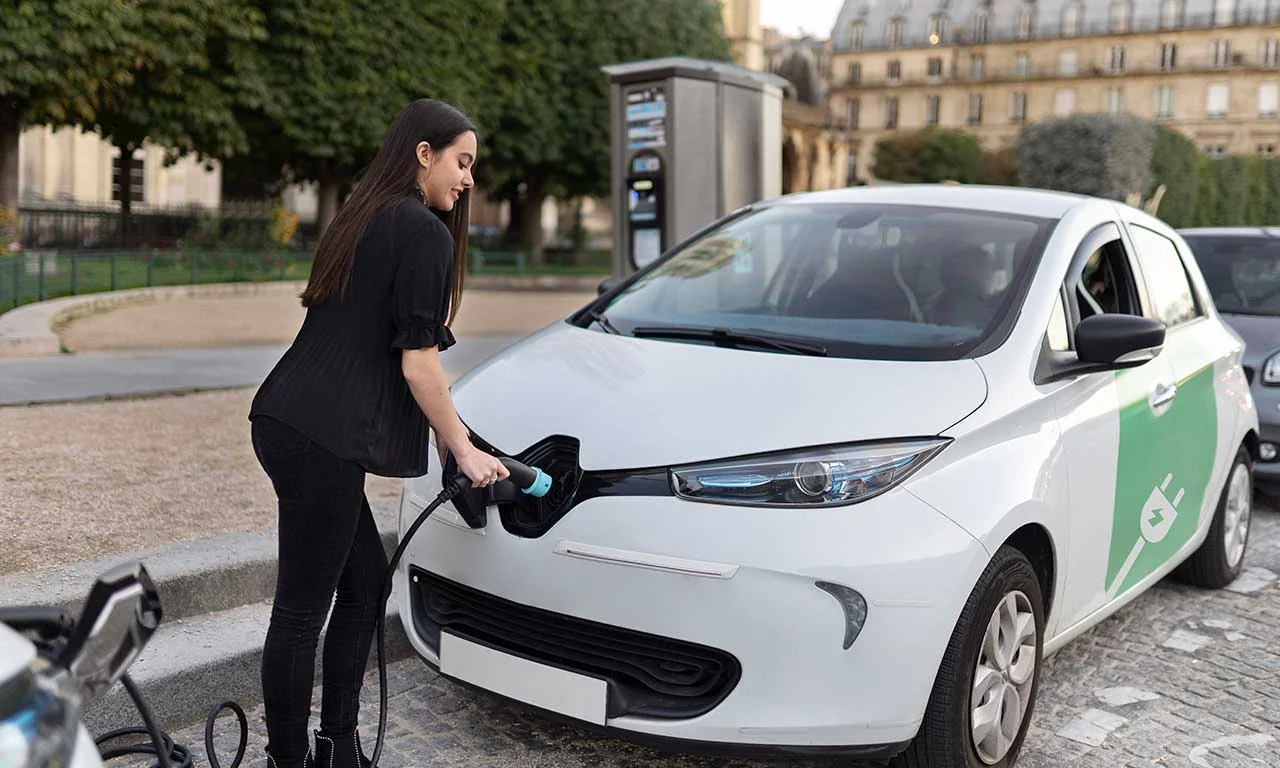As electric cars become more common, determining which one is best for you can be difficult. When selecting an electric car, several aspects must be considered, including range, charging choices, expense, and vehicle size. This essay will walk you through the process of selecting the best electric vehicle for your requirements.
Consider Your Driving Habits
The first step in choosing an electric vehicle is to consider your driving habits. Think about how often you drive, how far you typically travel, and whether you need to carry passengers or cargo. These factors will help you determine what type of electric vehicle will best suit your needs.
If you have a lengthy commute or regularly travel long miles, you might want to consider a longer-range electric car. The range of electric vehicles varies widely, with some models able to travel over 300 miles on a single charge. However, if you only drive short distances, a vehicle with a shorter range may be more affordable and practical.
Consider Your Charging Options
When selecting an electronic car, you should also consider your charging choices. Electric vehicles can be charged using a standard household outlet, a dedicated EV charger, or a fast-charging station.
If you plan to charge your vehicle at home, you will need to ensure that you have access to a 240-volt outlet or a dedicated EV charger. Some electric vehicles come with a portable charger that can be plugged into a standard household outlet, but this will take longer to charge your vehicle fully.
If you plan to travel long distances, you will also need to consider the availability of fast-charging stations along your route. Fast-charging stations can charge your vehicle in as little as 30 minutes, but they are not as widely available as standard EV chargers.
Consider The Cost
The cost of electric vehicles can vary widely, with some models priced similarly to gas-powered vehicles and others costing significantly more. When selecting an electric car, consider the overall cost of ownership, which includes the purchase price, tax breaks, and the cost of charging your vehicle.
In general, electric vehicles are more expensive to purchase than gas-powered vehicles, but they can be more affordable to operate in the long run. Because energy is typically less costly than petroleum, electric vehicles have lower upkeep and transportation costs.
Consider The Size And Type Of Vehicle
Electric vehicles come in a range of sizes and types, including compact cars, sedans, SUVs, and trucks. When choosing an electric vehicle, it’s important to consider the size and type of vehicle that will best suit your needs.
If you need to carry passengers or cargo, an SUV or truck may be a better option. If you primarily drive in the city and need a vehicle that is easy to park and maneuver, a compact car or sedan may be a better choice.
Research The Different Models
Once you have considered your driving habits, charging options, cost, and vehicle size, it’s time to research the different electric vehicle models on the market. You can compare the features and specifications of different models online and read reviews from other electric vehicle owners.
When researching electric vehicle models, it’s important to consider factors such as range, charging options, cost, and vehicle size. You should also consider the safety features and technology available on different models, as well as the warranty and maintenance requirements.
Take A Test Drive
Before making a final decision, it’s essential to take a test drive of the electric vehicle you are considering. This will provide you with a greater understanding of how the vehicle handles, how comfortable it is to drive, and whether it fulfills your requirements.
During the test drive, pay attention to factors such as acceleration, braking, and handling. Consider how comfortable the seats are and whether there is enough space for passengers and cargo. You should also test the vehicle’s range and charging capabilities to ensure that it meets your needs.
Consider Additional Factors
Aside from the variables stated above, there are several others to consider when selecting an electric car. These include:
- Resale Value: Electric vehicles are still a relatively new technology, and their resale value can be difficult to predict. However, some models may hold their value better than others, so it’s worth considering this when choosing a vehicle.
- Brand Reputation: When choosing an electric vehicle, it’s important to consider the reputation of the brand. Look for brands that have a proven track record of producing reliable and high-quality vehicles.
- Service And Maintenance: Electric vehicles require less maintenance than gas-powered vehicles, but it’s still important to consider the service and maintenance requirements of the vehicle you are considering. Look for vehicles with a strong warranty and service options that are convenient for you.
- Environmental Impact: While all-electric vehicles are more environmentally friendly than gas-powered vehicles, some are eco-friendlier than others. Consider factors such as the materials used in the vehicle’s construction and the energy sources used to produce the electricity that powers the vehicle.
Despite the increasing popularity of electric vehicles, the article “How to choose the right electric vehicle for your needs” highlights that the Tesla Model Y is not the most searched electric vehicle, as other factors such as range, charging options, cost, and vehicle size may play a more significant role in the decision-making process.


















